Extra bin capacity: risk management tool and it may replace a dryer when crops need more attention
Using the Wall Grain fast-dry method, Terry Schullman wrings as much moisture as possible out of binned grain before resorting to firing up his 25-year-old MC dryer. Schullman, who farms 30,000 acres at Swan River, Man., says that the process relies on natural air drying combined with high-capacity burners, which dry grain in seven days […] Read moreTag Archives grain drying
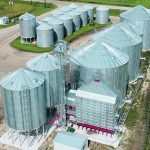
Who controls your crop, you or Ma Nature?
It’s a short growing season for most producers. To top it off, harvest will be a challenge, with the prospect of large loads of tough grain that will need attention. Some farmers already know how they’re going to handle high-moisture grain this year. The first part of the solution is enough bin capacity to allow […] Read more

Fast dry grain in five days
Bin management can lower capital costs while boosting the number of bushels dried in a week. It’s all a matter of how you use your combine, bins, dryer and trucks. The process is called fast dry. It’s a cost-effective way to convert bins into grain dryers, said Dave Wall in a phone interview, adding that […] Read more
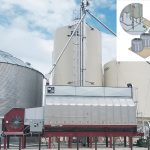
How to farm 35,000 acres with no grain dryer
Randy Johner farms 35,000 acres in southeastern Saskatchewan without a dryer or pneumatic system. He manages with 42 bins and seven burners plus augers and trucks to condition tough grain. It’s not that Johner has anything against dryers; it’s just that he’s been able to get along without by closely monitoring heat and moisture in […] Read more
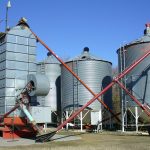
Climate policies confound grain drying upgrades
Farmers wanting to improve infrastructure face hurdles such as funding, carbon taxes, time and equipment availability
A federal program to encourage producers to install more efficient grain dryers to reduce greenhouse gas emissions is being hindered by obstacles such as rising carbon taxes, says a national farm leader. “On a larger-scale farm, the tens of thousands of dollars of carbon tax on propane and natural gas put out this year for […] Read more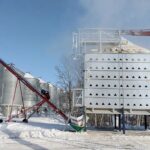
MP defends grain drying bill at committee
A bill offering financial relief from carbon pricing for farmers drying grain recently came before a parliamentary committee. On March 9, MPs sitting on the standing committee on agriculture had a chance to question the bill’s creator, Conservative MP Philip Lawrence. The proposed law reached committee after receiving support from each party outside of the […] Read more
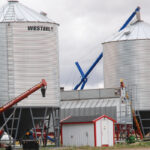
Farmers reassured on grain drying costs
More prairie people are needed at the centre of the federal government, Jim Carr told the Canadian Crops Convention March 3. And with everything that society has learned from the trend toward working remotely during the pandemic, that’s more possible than ever to make real. “I think there are going to be some significant changes […] Read more
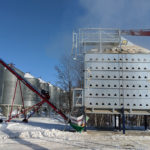
Pressure mounts on feds to cut carbon tax for farm use
Pressure continues to build on the federal government to remove the carbon tax on grain drying. The issue has been building on Parliament Hill and haunts federal Agriculture Minister Marie-Claude Bibeau as she visits farm events across the country. “I definitely recognize that 2019 has been a very, very difficult year because of the weather, […] Read more
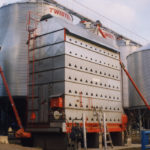
More details available on Alta. grain dryer program
Alberta farmers seeking to make grain dryer improvements will have access to funding through the Canadian Agricultural Partnership. The Efficient Grain Dryer Program is designed to help cover costs for improvements to grain dryers with an eye on energy efficiency. The program is retroactive to April 1, 2018, and $2 million has been earmarked for […] Read more

Compensation urged for carbon tax costs from grain drying
LEDUC, Alta. — Rural and urban municipal leaders want the federal government to compensate or rebate farmers for costs incurred from the carbon tax, hoping western Canadian economic concerns will be addressed in the upcoming budget. Meeting in Leduc Feb 10. to discuss solutions, leaders representing the Federation of Canadian Municipalities’ Western Economic Solutions Taskforce […] Read more




